- Home
- Johnny D. Boggs
Buckskin, Bloomers, and Me Page 15
Buckskin, Bloomers, and Me Read online
Page 15
“We have a good team,” the redheaded waitress said, “but need a new manager and captain.”
“Is that so?” Buckskin decided to put hisself into my conversation with this nice, young, redheaded waitress. Ruth’s hair didn’t have even a hint of red.
“Yeah.” It wasn’t the redheaded waitress who said that, but a big miner sitting at the counter next to a coffee-slurping cowboy, who also decided to put hisself into my talk with the waitress. The cowboy nudged the man in the pinstriped suit next to him, and that fellow turned around and grinned.
“Lynched the little …” the cowboy started to say.
But it was the man in the pinstripes who finished the cowboy’s sentence, calling the manager a word that caused the redheaded waitress to blush.
Then the miner said: “You best not try to rob any store in our town, boys.”
The waitress come to our defense, saying: “They don’t plan to do that, Zane.”
The fellow in pinstripes opened his mouth to say something, but the waitress said: “Keep your trap shut, Max, and finish your coffee.”
The cowboy slurped more coffee, the redhead give me a pitiful look and apologized for Zane’s and Max’s rudeness, but did say she sure wished the Salida Nine could find a new manager.
That’s when the bell above the door jingled, and Louis Friedman stepped in and stood, beckoning the redheaded waitress over. I heard him tell her there’d be two ladies joining him in ten minutes. I hoped them fish and eggs would come soon, though I doubted I could wolf down my breakfast in ten minutes. More and more folks began piling into the café, so I didn’t get much more time to talk to the red-headed waitress except to thank her when I paid for my meal. As I followed Buckskin out, I nodded at Ruth and her ma, who sat in a corner booth.
* * * * *
Mr. Norris took the stagecoach to Whitehorn, and back, too, after we played the Miners, who was really miners and not just the name they gave the team. Buckskin said I might have to take over pitching, as we were at an altitude of more than nine thousand feet.
Gypsie O’Hearn did good and pitched the whole game. We won and then returned to Salida in our rented wagons. I wanted to have more trout and eggs for breakfast, but the café was closed, it being Sunday, so I just had coffee at this hut beside the depot before we took the Denver & Rio Grande to Cañon City, which is where Snail Snyder was going to be spending a year just for trying to steal chickens with a .38-caliber pistol.
We beat Cañon City, too, and went on to Pueblo, where we bottled up Lithia. Buckskin said I had made a good pun when I read that line to him, even though I didn’t know what a pun was, but I knew that we had beat Pueblo’s team four to zero.
We kept winning ball games but then took a train to Greeley, where all our luck went to Hades.
Chapter Twenty-One
Greeley Tribune
Greeley, Colorado • August 2, 1906
Ed Morris, manager of the National Bloomer Girls’ baseball team of Kansas City, skipped out Thursday morning for parts unknown, leaving the girls behind. However, [this] fact did not disturb the girls in the least, as he had no hold on the company pocketbook. One of their number, already financial manager, stepped into the shoes of the general manager, and the game went on.
“Ed Norris …” Buckskin paused as we stood at the front desk at the hotel in Greeley. “… Checked out?”
It had been a long train ride from Pueblo.
“He never checked in, sir,” the pockmarked fellow with the brass-frame spectacles told us.
“He must have been delayed,” Buckskin said, looking like he was thinking hard. He glanced at me, glanced out the big front window behind him, and turned back to give the clerk a confident smile. But when Buckskin looked at me, I didn’t see no confidence at all. Just a troubled, worried, even petrified ballist. Yet when Buckskin faced the clerk again, he made himself sound like everything was going like it was supposed to be going.
“But you have all of the rooms for the Bloomer Girls in order?” Buckskin inquired.
“Of course.”
“Good, good, sir.” He kept his tone friendly, upbeat, and even his eyes didn’t have no uneasy look to them if you didn’t know him. But to me, Buckskin’s eyes revealed that he was ready to rip off somebody’s head and spit down the hole. Luckily, that head wasn’t mine or the fellow who was turning the register around so that Buckskin could sign it.
“Thank you,” Buckskin said. “The girls will be checking in directly.”
“Excellent. Including Lucy Totton?”
Hearing my Bloomer Girl name, Buckskin looked at me. I wasn’t dressed as no Bloomer Girl, though I was supposed to be. Buckskin had said that was foolish these days and unless Mr. Norris insisted, I shouldn’t dress up except when we was at the ballpark. When I had reminded him that I had the Widow Amy DeFee to worry about, he nodded, sighed, and left it up to me. So I decided that unless I was at a Bloomer Girls’ game, I wouldn’t wear no bloomers or no dresses, but it would be my own fault if I got kilt for dressing up in that suit I’d bought in Kansas.
“What do you want with Lucy?” Buckskin asked the clerk.
“Oh, nothing,” the clerk said. “We just have read so much about her.” He looked at the door. “We’ve heard about all the Bloomer Girls. The whole town will be on hand for the game tomorrow.”
“Good,” Buckskin said. “Lucy Totton’s a great player.”
“Yes, she is.”
“So is Francis Marion,” Buckskin said.
“Indeed,” said the clerk.
“And Blair Baddeley.”
“Yes, yes. Your team is loaded with exceptional ladies. I sure hope many of those girls will honor me with their autographs.”
“As soon as they check in,” Buckskin said. “Thank you. Most are still at the depot gathering their bags.” He rubbed his chin, which needed a shave, but it didn’t matter, ’cause he wasn’t dressed in his Bloomer uniform, neither. “Is the telegraph office open?”
“At this hour?” The clerk looked apologetic. “I’m afraid it wouldn’t be.”
Buckskin glanced at the telephone that hung on the wall. He considered the staircase, the elevator, the newspapers piled on one corner of the desk, our grips that we’d put on the floor next to us. We had got to the hotel ahead of the Bloomer Girls, ’cause Mr. Norris had left Buckskin in charge after catching an early train to Greeley, and not because it takes girls longer to gather their things together.
At length, Buckskin said: “Might we leave our luggage here until everyone is checked in?”
The clerk looked happy, ’cause now he had something to do, but when he looked at the big clock on the mantel of the stone fireplace, he said: “I will be off duty in fifteen minutes, but I can have Jorge take your cases and bags up to your room … Mister …?”
“Madison,” Buckskin said. “Dole E. Madison.” When he’d booked the hotel weeks ago, he’d put his Bloomer Girl alias down, since he figured that Mr. Norris would be back to taking care of the business end of things.
The clerk looked confused as he studied his list of reservations, but Buckskin didn’t give him a chance to think much about it, saying: “If you have me down as Dolly, don’t fret. It happens all the time.” As he said this, he fished a coin from his pocket and slid it across the cherrywood countertop, which the clerk took discretely, nodding solemnly. Buckskin picked up his bat bag that held only the Winchester .45-90 since the Colt revolver had been confiscated by the law after they’d arrested Snail Snyder in Colorado Springs.
“Would you like Jorge to take that bag up as well?” the clerk asked.
“No, but thank you. I might need this.” Buckskin turned to me. “And you should take your grip, too.” He pointed to one of my bags, but I didn’t have no weapon in it. “In case you run into Francis.”
I didn’t know no Francis, and knew nobody play
ed for the Bloomer Girls with that handle, but I did just like Buckskin told me to do. He thanked the clerk again and give me a nod that told me to follow him.
“Something’s not right,” he told me once we were outside and he was leaning against the wall of the hotel in an alley, where there was hardly no light at all shining on us.
I asked: “Is Francis Marion replacing Charlie Barngrover or Snail Snyder?”
“Francis Marion was a hero of the Revolutionary War.”
Then he’d be far too old to help us, I thought to myself.
“And who’s this Blair Baddeley you mentioned?” I asked as I set my grip on the dirt.
“Another one of my aliases,” he said, removing his hat and running his hands through his hair. He didn’t say nothing else, just adjusted how he was carrying his bag, before heading down the alley. He didn’t stop till he found the privies, though he and me both had gone when we got off the train. He opened a door and told me to get in.
“Change into your Bloomer uniform,” he ordered before I could protest, not sounding like my bunkie or pard no more, but my manager, my coach, my boss.
“Wait fifteen minutes. The new clerk should be on duty by then. Sign in as Lady Waddell. Not Lucy Totton. Lady Waddell. You got that? Lady Waddell.”
I got it. Buckskin never said nothing three times, so I knew he was serious.
“When you get into the room, wedge a chair under the doorknob, and don’t let anyone in till you hear my voice. Not a soul. Savvy?”
I didn’t but said I did. Standing in the two-seater, Buckskin let go of the door, and it slammed shut. I had just started to change when there was a pounding on the rickety door.
“Kid,” Buckskin called. “Forget what I said about the hotel. Do not go back to that hotel. If somebody asked about Lucy Totton, there’s only one person that can be, and that’s your stepmother.”
Almost messed my britches.
“Get dressed. Meet me back at the depot. Savvy?”
A squeak of a word left my lips.
Didn’t hear nothing after that but Buckskin’s footsteps.
A darkened outhouse, even a four-seater, in a strange city ain’t the best place for a fellow to change into bloomers and a girls’ blouse, but I done my best, then I waited until the fellow in the two-seater privy, immediately behind mine, was done. I pray I never eat whatever it was that afflicted him, but as soon as I heard him leave, I edged open the door, made sure nobody was waiting to answer nature’s call, and then I got my bag, straightened my cap, and moved down that alley.
Screams commenced to cut through the night, and they were coming from the depot. Since Greeley had gas street lamps, I could see folks running around, and most were wearing Bloomer uniforms. And there was no mistaking Maggie Casey’s bass notes.
“Ruth … Ruth … Carrie … Carrie …!”
“Ruth? Have you seen Ruth?”
“Carrie … Carrie … where are you?”
I sprinted back to the depot, where a figure rushed out of an alley and grabbed my shoulder and spun me around.
“Have you seen Ruth?” Louis Friedman asked, fright filling his wide eyes. He shook me so hard that my bag slipped to the dirt as he shouted in my face: “Where is she?”
My right arm came up to knock both of his hands away, and I told him that I didn’t know were Ruth was.
“Carrie? Carrie? Where are you?” That’s what Pearl Murphy was shouting. I didn’t know where she was, neither.
“My baby … my baby …”
Even Mrs. Eagan’s sobs sort of pained my heart, and I didn’t like Mrs. Eagan, never had. Besides, I was becoming more than a little annoyed over the I’m-so-pretty-and-you-ain’t-
nothing-other-than-a-boy-playing-a-girls’-game angle Ruth had been playing since she and the others had joined Buckskin and me in Colorado.
Friedman staggered back, blinking rapidly. “Are you sure you haven’t seen her?”
“I haven’t seen her since I got off the train,” I said.
“Where have you been? What have you been doing? Why haven’t you been helping us look for her?”
I bit my bottom lip and allowed him to keep spouting out questions since he was a writer—though just a correspondent and not a staff writer—for the Sporting News. When he finally stopped talking to draw hisself a breath, I said: “I was with Buckskin trying to check into the hotel.”
He stopped, turned, looked down the street. “The hotel,” he repeated, looking down the street, spun back toward me, and said: “Has she checked in?”
“No,” I told him. “Buckskin and me were the first there.”
It didn’t occur to me until Friedman got distracted by a wagon and ran over to it, yelling at the driver, who stopped and appeared ready to take off Friedman’s nose with his bullwhip, that it might be that Ruth, and Carrie, too, had checked into the hotel whilst I was in that privy getting into my Bloomer uniform, even though he didn’t seem to care nothing about where Carrie had gotten herself to.
Louis Friedman continued to travel down the street, stopping people with questions. More and more people were gathering in the street, even some strangers, shouting out for Ruth and Carrie. When I spotted Buckskin off by some corrals, I grabbed my grip and ran toward him. But before I got halfway to him, he had left. I tried to call out to him, but with all the others yelling, my voice was probably drowned out. I hadn’t quite caught up with him when he turned the corner and headed down another street. I found him looking at trash bin that had been tipped over in front of the Goodman & Neill Clothing Company.
Hearing my footsteps, Buckskin turned as he reached toward his bat bag, but the street lamps must have shown him my face, so he knew it was me and not one of the Kelton brothers. He acknowledged me with a nod of his head, then bent to reach inside the trash bin. Buckskin didn’t say nothing, didn’t ask nothing, for he didn’t need to. He knew what it was and who it belonged to, same as me.
It was a BXS first baseman’s mitt, from A. G. Spalding & Brothers, priced at four dollars. Practically brand new, I knew Ruth wouldn’t have thrown it in no trash can. Not after the game she’d played in Pueblo.
Buckskin said: “Find a lawman.”
Feeling sicker than liquor ever made Nelse McConnell or even Charlie Barngrover, I obeyed. I had almost reached the corner, when Buckskin called out my name and told me to stop. Which I done, and headed back.
“What is it?” I asked.
He was holding a piece of paper that he was reading in the dim light. When he was finished, he handed it to me.
Chapter Twenty-Two
Castle Rock Journal
Castle Rock, Colorado • July 13, 1906
This is a first-class team and are known from coast to coast. The ladies travel in their own special car and make ball playing a business. Don’t fail to see this game.
“What the farthing is going on?” Maggie Casey said, and she did say farthing. Might have been ’cause Louis Friedman was in the room, and she generally talked nicer when the press was around, even though Friedman could hear Maggie cussing like a bullwhacker whilst he was covering our games.
“Exactly what the note says,” Buckskin said before turning to me. “Right?”
Maggie had just finished reading the note that Buckskin had found, and now Louis Friedman was reading it.
I said: “It’s her handwriting.”
“Whose?” Maggie asked.
“The kid’s mother’s,” Buckskin said.
“Stepma,” I corrected. “Not my birthing ma.”
“Lord have mercy,” Louis Friedman said, which meant he read what the Widow Amy DeFee had put in the note that she had stuck inside Ruth’s new mitt, and then in the trash can.
The note was handed back to me, but I didn’t want it no more, ’cause them words had done been burned inside my brain.
Here
’s what it said, though it’s hard for me to replicate in my Daisy writing tablet, ’cause the Widow Amy DeFee had cut out letters, numbers, and whole words from newspapers to make up this note, excepting for the last paragraph, which she wrote and which I recognized as being her handwriting.
My name come from the write-up about our game in Colorado Springs, but the fool reporter for the Weekly Gazette had spelled my name wrong—it’s o-n, not e-n—though it ain’t my real name, so it don’t matter.
Lucy Totten
You and U alone will bring
$5,000
To FoRt VaSquEz tomorrow
after the team Leaves 4
Breckenridge
Or the 2 girls
DIE
Lucy's Pal will bring
$5000 to the game in
Breckenridge
WHICH
U will lose
oR the 2 girls
DIE
Lucy comes aloNe
Don't get the Law
Involved
Or the GIRLS diE
The written part in the Widow Amy DeFee’s own hand said:
Ask young Lucy if I mean what I say. Follow my instructions to the letter. The girls will be returned, unharmed, after you lose Tuesday’s game. I will find you in the grandstand in Breckenridge. Or ELSE!
“What’s this all about?” Louis Friedman asked.
Buckskin nodded at me. I sighed, and after telling the inkslinger about the widow, the evil judge, me, my pa, and how I come to hide out with a women’s baseball team, Louis Friedman gave me and Buckskin a dumb look. His lips parted every few seconds, but he, who made his living writing words, couldn’t find nothing to say, so he reread the note.
“Why does she want the Bloomers to lose to Breckenridge?” he finally said.
“If you knew the Widow Amy DeFee like I do, you’d know she and that murdering Judge Brett has bet a tidy sum on Breckenridge,” I told him. Which would’ve been a sure bet back in the olden times when the girls was losing and Lady Waddell was suffering from what folks call an indelicate affliction and Nelse McConnell was drunk, but not these times, now that the Bloomers kept winning. It also explained why they had kidnapped Carrie Cassady, who was pitching great, and Ruth Eagan, who had become not only a first-rate first basewoman but good at some timely hits.

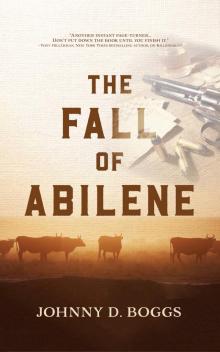 The Fall of Abilene
The Fall of Abilene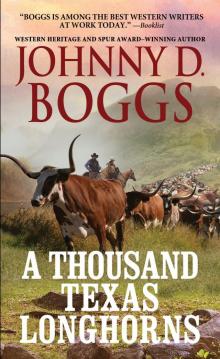 A Thousand Texas Longhorns
A Thousand Texas Longhorns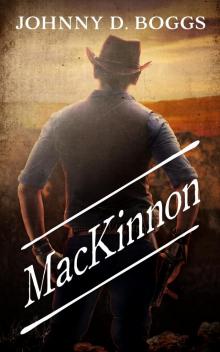 MacKinnon
MacKinnon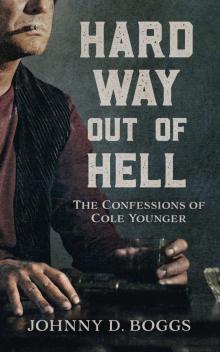 Hard Way Out of Hell
Hard Way Out of Hell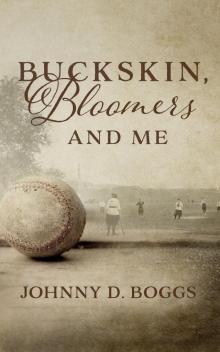 Buckskin, Bloomers, and Me
Buckskin, Bloomers, and Me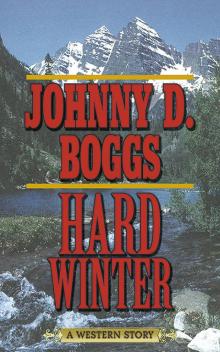 Hard Winter
Hard Winter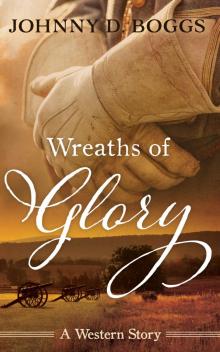 Wreaths of Glory
Wreaths of Glory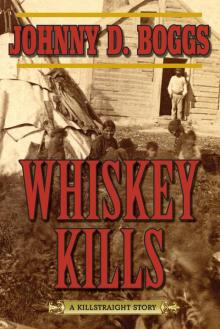 Whiskey Kills
Whiskey Kills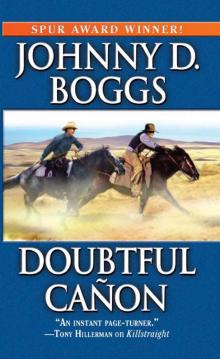 Doubtful Canon
Doubtful Canon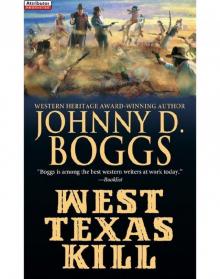 West Texas Kill
West Texas Kill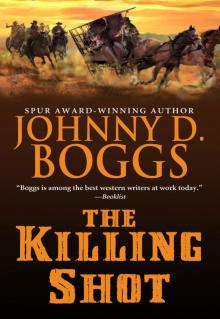 The Killing Shot
The Killing Shot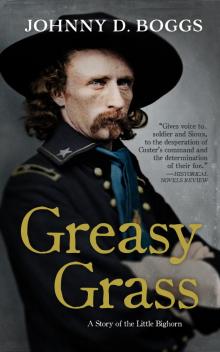 Greasy Grass
Greasy Grass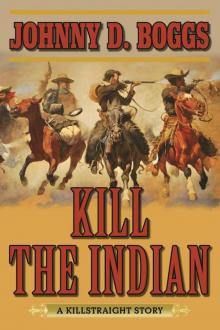 Kill the Indian
Kill the Indian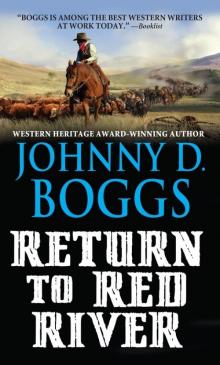 Return to Red River
Return to Red River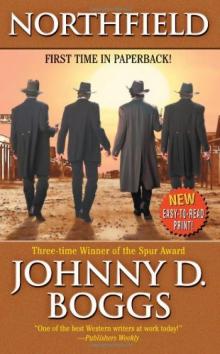 Northfield
Northfield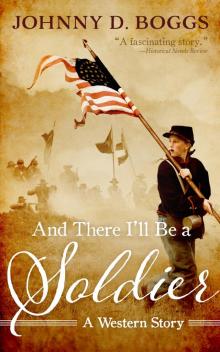 And There I’ll Be a Soldier
And There I’ll Be a Soldier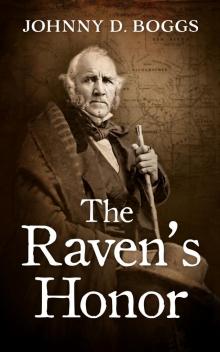 The Raven's Honor
The Raven's Honor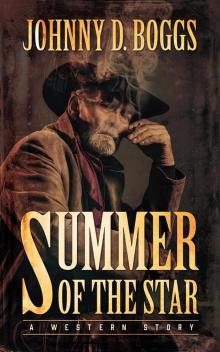 Summer of the Star
Summer of the Star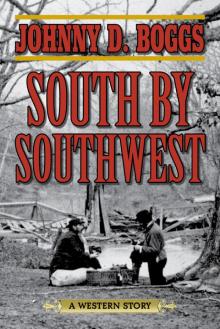 South by Southwest
South by Southwest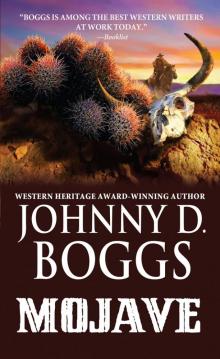 Mojave
Mojave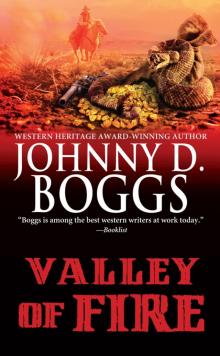 Valley of Fire
Valley of Fire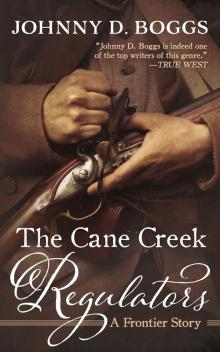 The Cane Creek Regulators
The Cane Creek Regulators